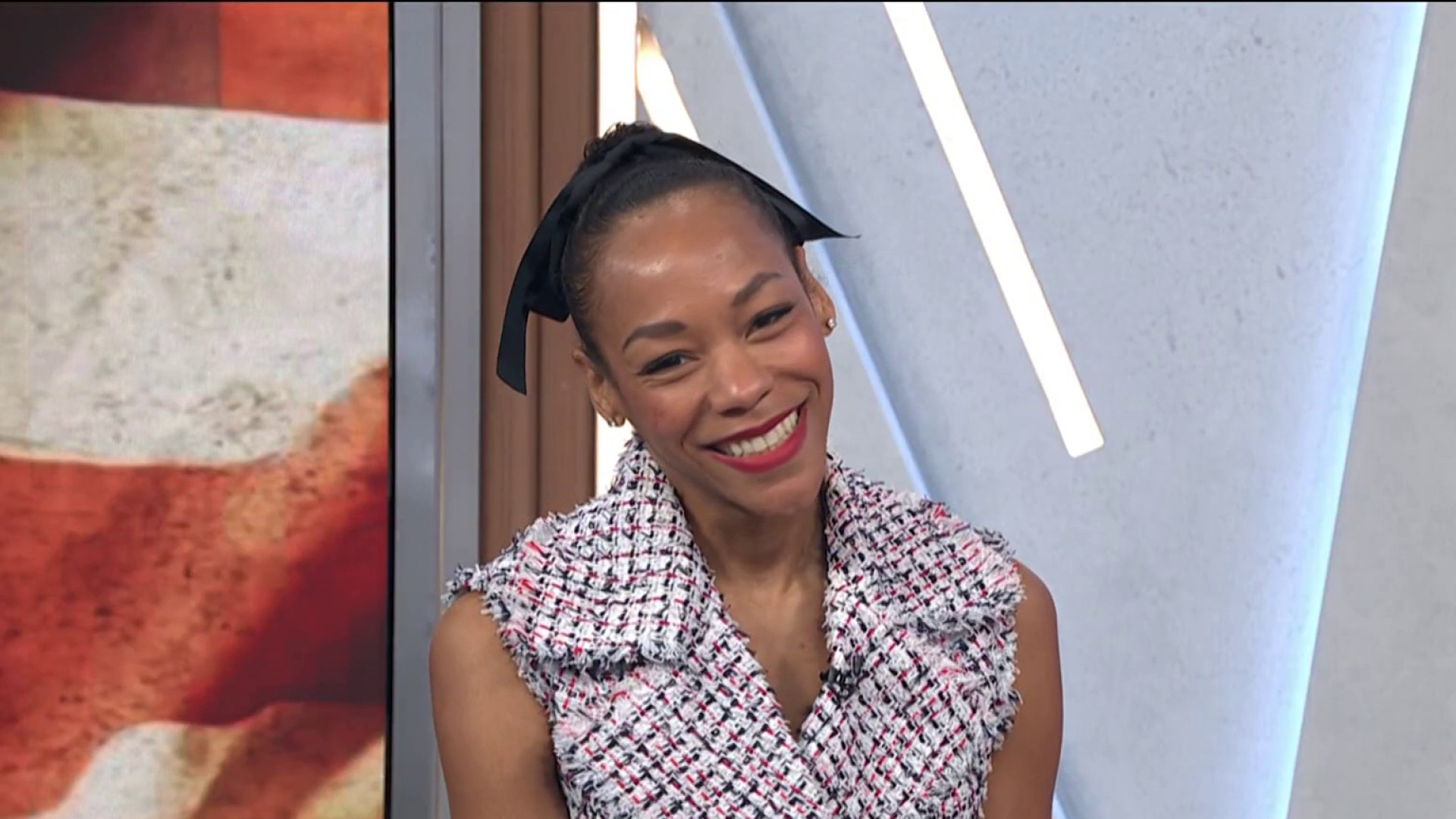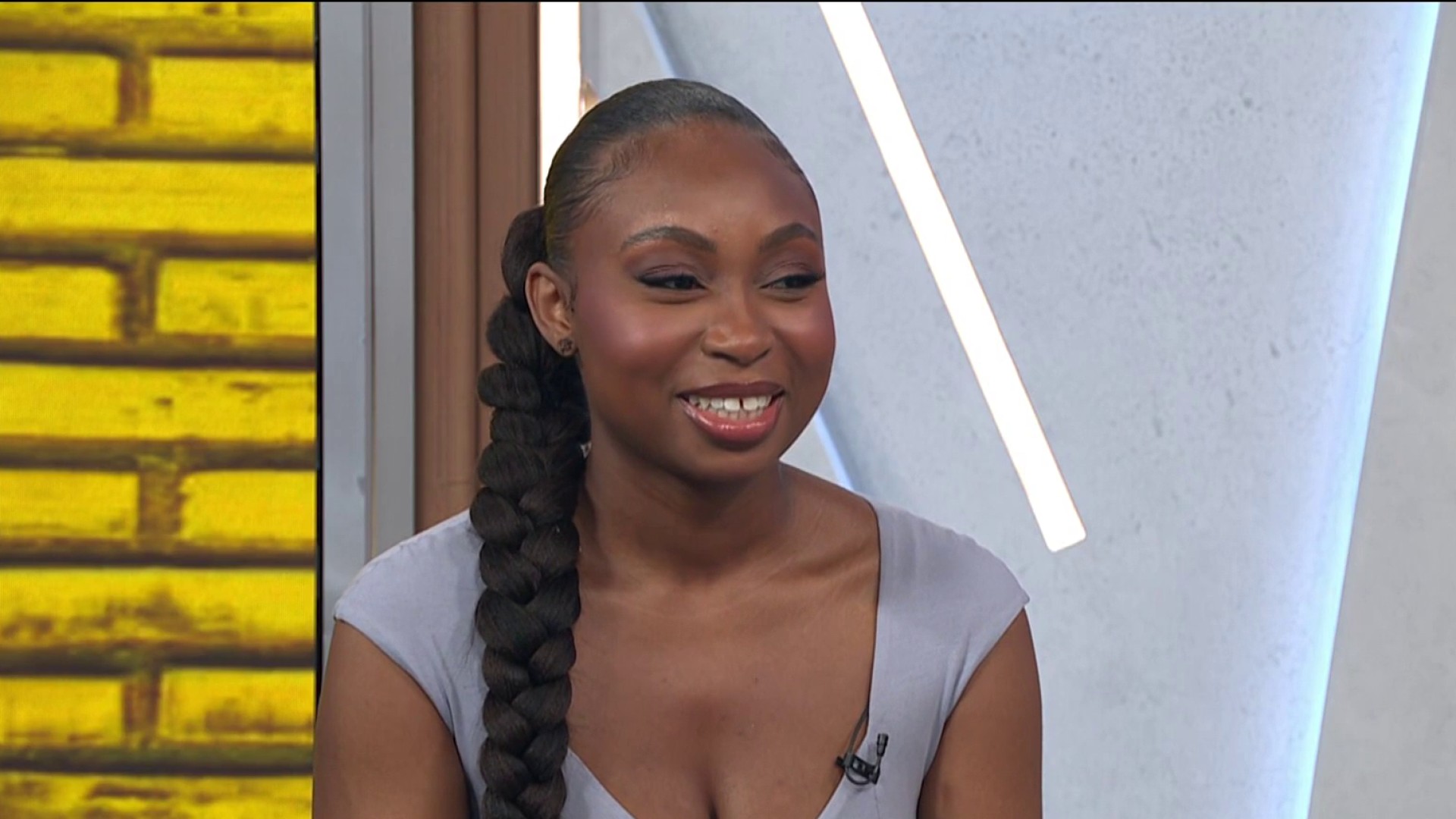The lives of a sheltered teen and an abused wife intersect at a pivotal moment for each in “When We Were Young and Unafraid,” an affecting drama from thirty-something playwright Sarah Treem. Directed by Pam McKinnon (“Clybourne Park”), the MTC production has just opened at New York City Center’s Stage I.
Cherry Jones leads the 1970s-set ensemble piece as Agnes, owner of a Pacific Northwest B&B that does double-duty as an underground shelter for domestic violence victims. Only a sliding door to Agnes’s kitchen separates paying vacationers from these battered women, whom the proprietress instructs to remain upstairs and out-of-sight until their wounds heal.
As the two-act story begins, Agnes’s bookish daughter, Penny (Morgan Saylor, of “Homeland”), is arguing that she doesn’t need to attend her prom, a ritual she associates with the “systematic oppression” of women. The moment is there to establish Penny as a free-thinking independent, but it’s apparent early in this exploration of gender politics that she is oppressed, in her own way—she just doesn’t know it yet.
Enter Mary Anne (actress and playwright Zoe Kazan, of “Ruby Sparks”), an abuse victim in her mid-20s, on the run from a husband whom we never see but who remains a perceived threat throughout the play. Penny at first has little interest in this interloper, who only seems to achieve validation through the exercise of her own sexual prowess. But as barriers fall between the duo, Penny discovers that Mary Anne is a woman who can help her realize her own feminine allure.
Mary Anne’s growing influence over Penny begins to test Agnes’s patience—and two-time Tony winner Jones, up to her perfectionist standards, is an apposite vehicle for Treem’s exploration of the conflicts between young and old. As Agnes struggles to adapt to changing times, we learn slowly and deliberately what motivates her to run this particular stop on the feminist underground railroad. (Hint: It’s more than the explanation she gives Mary Anne: “I just think everyone deserves a chance.”)
It’s a credit to Treem’s dialogue and Kazan’s depiction of an abuse victim that we never see troubled Mary Anne as a woman blind to her narrowing options. Trying to explain to Agnes her bond with husband John, Mary Anne says, simply, that their powerful physical connection leaves her almost incapacitated: “I can’t breathe it hurts so badly.” Mary Anne is relatable, even for a woman you may not necessarily like, or trust … or want hanging around your own kid.
Saylor shines as an impressionable teen learning that sexual and emotional freedom sometimes bring with them, unexpectedly, a desire to just go back home and roost.

I had difficulty with a storyline between Agnes and Hannah (Cherise Booth, with Jones, above), a radical feminist espousing the ideas of Ti-Grace Atkinson who forces her way into the household, though Agnes wants nothing to do with her. Booth, an Obie Award-winner for the teen-pregnancy drama “Milk Like Sugar,” does a fine job evoking the particular time and place, but Hannah feels primarily like a caricature among Treem’s more well-developed personalities.
Broadway
Patch Darragh (“Weeds,” “Boardwalk Empire”) is nice as a gentle San Francisco vacationer whose shades of effeminacy leave a lukewarm impression on Mary Anne when he tries to pursue her.
Treem is a rising playwright whose credits include episodes of the Netflix series “House of Cards” and the HBO therapy drama “In Treatment.” Though her thought-provoking narrative gets stuck in the occasional rut, “When We Were Young and Unafraid” is a stark reminder of how rare it is to see such urgent subject matter tackled in mainstream theater.
“When We Were Young and Unafraid,” through Aug. 10 at New York City Center, 130 W. 56th St. Tickets: $89. Call 212-589-1212.
Follow Robert Kahn on Twitter@RobertKahn



